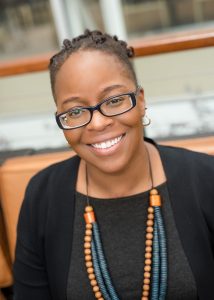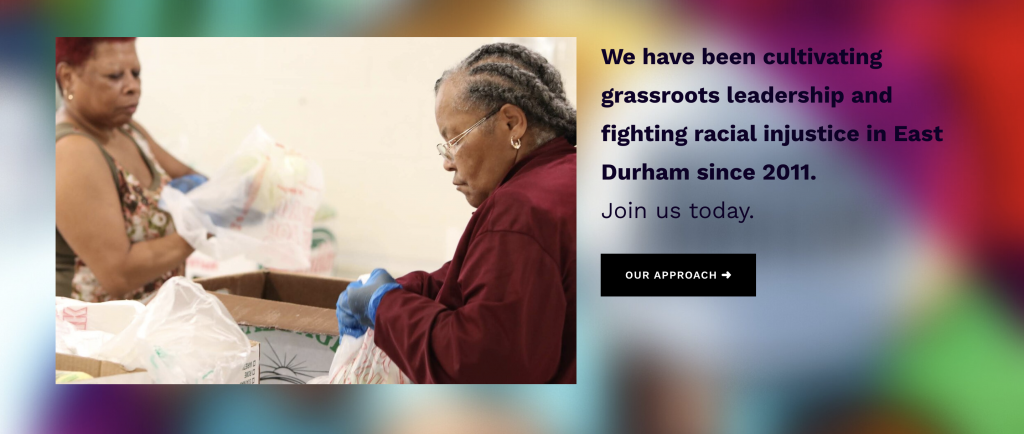By Izzy D’Alo ’22
 Danielle Spurlock, an assistant professor with UNC-Chapel Hill’s Department of City and Regional Planning, started her undergraduate career as a pre-med student at Stanford University. She enjoyed the health-related material and resonated with the understanding that everything in life is interconnected. However, she realized she did not want to go to medical school after learning about the field of public health.
Danielle Spurlock, an assistant professor with UNC-Chapel Hill’s Department of City and Regional Planning, started her undergraduate career as a pre-med student at Stanford University. She enjoyed the health-related material and resonated with the understanding that everything in life is interconnected. However, she realized she did not want to go to medical school after learning about the field of public health.
“I didn’t see myself as the person you see after something occurs,” she said. She wanted to prevent issues. After all, public health-related interventions can actively put the community front and center. After graduating with a degree in human biology with a focus on health disparities, Spurlock combined community work with data analysis at the Alameda County Department of Public Health.
Once she came to North Carolina for graduate school, one of her earliest, formative experiences with community work was with the North Carolina Environmental Justice Network—an organization that combines community organizing and advocacy with research support and legal representation. It was through that work that Spurlock realized what her career path would be.
Today, Spurlock is a Thorp Faculty Engaged Scholar through the Carolina Center for Public Service. This two-year program provides Carolina faculty members with $5,000 per year to help fund community-engaged research in participants’ area of academic interest. For Spurlock, that area of interest centers on the intersection of social equity, environmental protection and policy implementation. She looks at these fields holistically, even though they are often studied separately.
“I don’t think you can truly have a discussion of sustainability without talking about social equity,” she said. “You can’t talk about environmental protection without thinking about environmental justice and injustice.”
Spurlock’s primary community partner is the aptly-named nonprofit Communities in Partnership in Durham’s Old East neighborhood. Communities in Partnership is a majority Black women-led organization, with the mission to “organize and cultivate long-term residents, especially residents of color and low wealth, to work towards racial, economic and social liberation,” according to the organization website.

Spurlock has been working with Communities in Partnership for years. She focuses on issues such as environmental gentrification, a process by which adding green spaces to a low-income neighborhood drives up property prices, attracts wealthier residents and drives out the neighborhood’s original lower-income residents.
“So much of our policy and how it’s implemented, historically, has been inequitable, which builds into the present day inequities we see,” Spurlock said.
Communities in Partnership has established a food co-op and affordable housing initiatives. In recent years, the group acquired multifamily affordable housing. Today, the food co-op has more than 300 members.

Spurlock’s work supports program evaluation and explores improvements in the ways that Communities in Partnerships builds its initiatives. For example, Spurlock assists the nonprofit with statistics, community surveys, door-to-door or mail-based surveys and qualitative data that can be used to show progress and amplify community experiences.
As a Thorp Faculty Engaged Scholar, Spurlock said she feels especially supported by the TFES program’s emphasis on respectful community engagement.
“It’s always been a part of how I see my relationship with my community,” she said. “Everyone is part of a community, and everyone serves one another. Do unto your neighbor as you would do unto yourself. So how do you go that extra level?”
